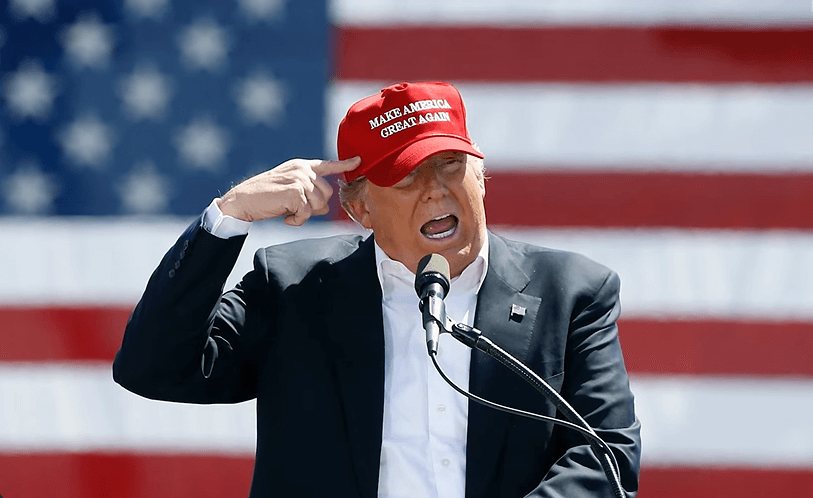I recall viewing an American crime film some years back. I can’t quite recall the title; it certainly wasn’t one of those films that sticks in the mind. However, it did feature a segment that I found quite illuminating. The principal witness in the matter was a rather striking “personal trainer”, who, it must be noted, was rather reluctant to lend his cooperation. He was a Norwegian citizen, embodying the quintessential “Viking” that captivates the American audience (particularly the ladies): youthful, tall, with striking blond hair and blue eyes, effortlessly skilled in the art of charming older women. Ultimately, the fair-haired gentleman was persuaded to provide testimony in return for the assurance of a “green card” to regularize his residency in the United States, thereby bringing resolution to the case.
At that moment, I had yet to set foot in Norway, yet I found it rather amusing that the notion of a Norwegian fervently seeking an American green card struck me as quite the contradiction.
To begin with, it seems rather improbable that a Norwegian citizen would lack the economic and cultural attributes necessary to acquire it with relative ease; however, what stands out even more is the likelihood that they would genuinely desire it: the standard of living in Norway is markedly superior to that of America. Should a Scandinavian citizen wish to enjoy a sojourn in America, drawn by its allure, they may readily finance a delightful holiday. However, it is highly unlikely that they would opt to relinquish the myriad benefits of their citizenship.
The misguided notion that all individuals yearn to embrace American ideals
Even at that time, as an ordinary citizen of Europe, despite never having set foot in Norway, it appeared quite clear to me. Having spent a few years in that environment, the idea presented in the film strikes me as utterly implausible, bordering on the absurd.
However, for the screenwriter – and particularly for American viewers – the notion seemed perfectly sensible, if not self-evident: the overwhelming majority of Americans operate under the assumption that everyone else globally yearns to be like them. Not merely to attain standards akin to those in America, but to embrace the status of US citizens.
This is a firm belief: I recall an American superior during an operational mission who valued my professional input and suggested the idea of my transitioning into the American armed forces, which would lead to citizenship. He was utterly perplexed by my view that the notion was not merely peculiar, but rather quite objectionable.
Undoubtedly, this notion of cultural and civil superiority, while prevalent, is not universally accepted. A considerable number of Americans possess a deep understanding of the world, engage in travel, and exhibit remarkable similarities to us Europeans. In my experience, particularly among colleagues, I have encountered many such individuals… however, they continue to be a minority.
The core of the populace
So, how does all of this relate to Trump? While I may not have all the answers, it seems to me that a key factor in Donald Trump’s election victory is his perception among many Americans as “one of them who made it,” in stark contrast to the typical “elite” background from which most political leaders emerge.
The Bushes and Clintons are viewed as part of an elite class, transcending political affiliations: an elite that possesses a keen understanding of global affairs (and is acutely aware that the Norwegians with green cards remain indifferent), yet has become increasingly detached from the everyday citizenry. It communicates in a complex manner, addressing abstract topics, and feels somewhat foreign.
Trump tends to avoid complex vocabulary, opting instead for straightforward ideas that one might encounter in a pub discussion. He is quite accessible, even for those with the most straightforward of minds. In numerous respects, he represents a modern interpretation of the “American dream”, as he appears to be “a straightforward chap who achieved success”.
He has successfully obscured the fact that his wealth was inherited rather than earned, as well as his past bankruptcy and criminal activities: through his eloquence and brash demeanor, he has garnered the affection of the typical American. His constituents characterize him as a person who “has his heart in the right place”. He is among them, and their trust in him remains unwavering.
The issue at hand is that, in numerous respects, the Americans have a point: Trump is, without a doubt, “one of them.” Among them, he is also someone who would find it entirely reasonable to entertain the idea of a Viking eager to do whatever it takes to embrace American life.
This is how Trump constructs his alternate realities.
It hardly bears repeating that Trump has declared himself a narcissist. It is a trait often observed among political leaders, yet in his instance, he exemplifies a successful narcissism, firmly believing in his own infallibility.
When he articulates an idea, even if merely to engage his audience, he shows no patience for dissent: rather, he emphasizes it with greater intensity, asserting it upon his colleagues, ultimately swaying public perception itself. This is the manner in which he constructs his “virtual truths”.
Among those assertions: the throngs at his initial inauguration (which he claimed would have surpassed Obama’s), the aspirations of Canadians and Greenlanders to join the American fold, the merits of tariff policy, and the notion that global acknowledgment of American preeminence can be achieved through sheer force of will.
He genuinely holds this belief, as it aligns with straightforward, commonplace American notions, and because “he’s never mistaken.” What implications does this hold for the ongoing situation in Ukraine? It brings to light the rather uncomfortable parallels between Trump and Putin. They are certainly not friends, quite the opposite, in fact. However, they acknowledge and hold each other in high regard, as they share notable similarities.
What lies ahead for the West?
Not merely overt narcissists, but rather those who have achieved success through their narcissism. Both emerged from the heart of their communities, possessing straightforward yet steadfast ideas. Leaders who are infallible, encircled by ever-loyal yet less capable aides, and who have little patience for opposing views. Leaders who consider themselves invincible and grounded in reality often reduce complex issues to a level of naivety that is almost childlike. Obstinate and capricious.
A sensible leader would not have embarked on an invasion of Ukraine in such a manner. A sensible leader would not have undermined their position within the West in such a manner. However, they indeed did. Thus, we must recognize their lack of reason.
The Western nations, including the EU, Great Britain, Canada, Australia, Japan, and Ukraine, must confront the reality that they are engaging with two parties—though at odds with one another—that are inherently antagonistic and lacking in reason.
The author, Orio George Stirpe, is an Italian military intelligence analyst. Source: Today.it










+ There are no comments
Add yours